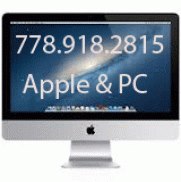
You can always go back and restore the previous settings if needed. The next step is to choose your username and deselect the unneeded applications. Go to System Preferences -> select ‘Users & Groups’. This may be causing slow bootup of your Mac OS El Capitan. Most likely, you don’t need the majority of apps launching on startup. If a dozen of applications starts loading once you turn your Mac on, check your login items. So, how can you make your El Capitan-operated Mac work faster? Take a look at the top ways to boost your OS X 10.11.

Tips to Perform Mac Tune-Up for El Capitan To reclaim diсk space and optimize El Capitan with maximum effect, choose comprehensive cleaning tools. However, there may be residual app data you still have to remove down the road. There is an option to use standard Mac OS optimization utilities. The bad news is, manual cleaning is only a temporary way out. Some go even further and remove the unneeded language packs. The first thing most Mac users come up with is uninstalling a few cumbersome apps, getting rid of old movies or music albums. Why do these problems occur? There are several typical reasons for a Mac to experience performance issues:īeing short on free disk space is a serious issue. Coming across problems like slow bootup, lagging apps or system freeze-ups within a working session is disappointing. Of course, you got used to Mac’s fast and proficient performance. Luckily, it is possible to optimize OS X 10.11 El Capitan and remove the factors hindering the system performance. El Capitan requires more disk space and RAM to ensure proper performance. This may happen due to bringing the previous settings and files over. However, if you choose to upgrade on top of the current OS version, you may discover that your operating system has become slower. If you wish to upgrade to El Capitan, the best way is to install it from scratch and migrate the user accounts and data. Coming next after OS X Yosemite, it’s oriented on security, performance, and stability.

Mac OS X El Capitan (version 10.11) is the 12th OS X release for laptops, desktops, and server Macintosh computers.


 0 kommentar(er)
0 kommentar(er)
